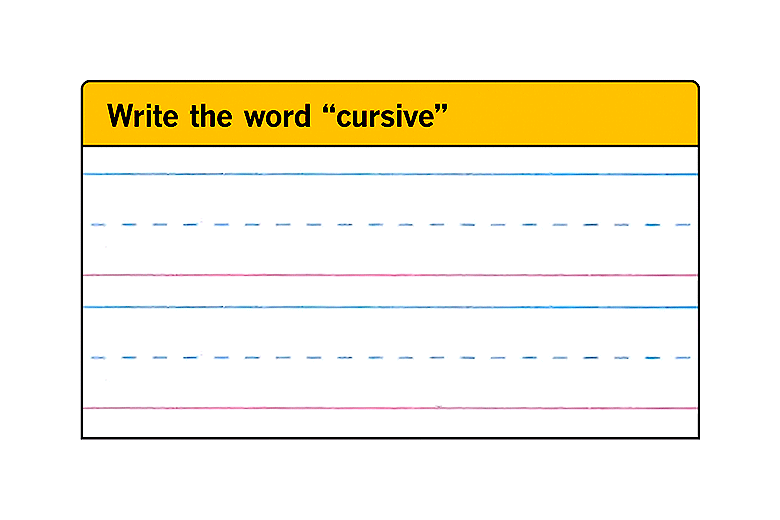Israelis See Handwriting as True Personality Test
- Share via
JERUSALEM — A young Israeli computer technician and his wife went apartment-hunting recently in a West Bank Jewish settlement near here and were surprised to learn that before being accepted as residents, they would have to submit samples of their handwriting for analysis.
“If you didn’t pass the graphology test, then you couldn’t be accepted at the settlement,” said the technician, who asked not to be identified by name. “It kind of turned us off a little. It seemed like reading tea leaves.”
The young couple did not take the test; they chose to live elsewhere. But every year, tens of thousands of other Israelis find their handwriting being analyzed in routine psychological and personality-screening procedures involved in getting a job, finding a place to live, even choosing a mate. Some volunteer; others are analyzed without their knowledge.
Throughout the world, handwriting analysis is an accepted criminal investigation tool. But its value as a mirror of personality is much more controversial. And in the United States, graphologists concede, their craft is often viewed as more fitting for a carnival sideshow than as serious psychological testing.
Most institutions in Israel are publicly ambivalent about it, even as they use it extensively to complement--in some cases, to substitute for--more conventional psychological tests.
In addition to many settlements on the West Bank, most Israeli kibbutzim and moshavim-- collective and cooperative farms--use handwriting analysis to screen applicants. Officials say the unusually close relationships and interdependence characteristic of these communities put a premium on ideological and personal compatibility.
Graphology experts here say that up to 60% of Israeli companies use handwriting analysis to help identify unsuitable or untrustworthy job applicants. “Position Available” advertisements routinely request handwritten resumes.
A spokesman for Bank Leumi, Israel’s largest financial institution, seemed slightly embarrassed but confirmed that all potential employees must take a graphology test.
Arie Naftali, who is perhaps Israel’s best-known graphologist, said in an interview that corporations make up about a third of his clients, and another third are individuals seeking career guidance or marriage counseling.
Love Less Blind
“The first time people marry, they’re either in love or so sure of themselves that they don’t ask,” he explained. “But before they marry for a second time, they go to a graphologist.”
Last month, police asked Naftali to analyze the handwriting of a 14-year-old boy accused of killing his parents and two sisters.
Naftali said his clients have included the Israeli air force, and Israeli intelligence reportedly keeps on file the graphological analyses of key Arab leaders.
“If it’s not used (in intelligence-gathering), it should be,” Naftali said.
Graphology emerged in continental Europe in the 19th Century, and the fact that it is so much more popular here than in much of the English-speaking world may be because so many of Israel’s founding fathers came from Central or Eastern Europe.
Quirks Revealed
Handwriting experts say they can detect certain personality traits by the way a person forms his letters and by the amount of pressure he uses. There are 19th-Century French books on the subject, and a daily newspaper in Leipzig, East Germany, started a graphological column in 1863.
The International Herald Tribune reported last year that the majority of French companies use handwriting analysis in recruiting executives. The paper said graphology is used extensively by companies in West Germany, Switzerland, Belgium, Italy and Spain.
Naftali, a former head of the Israeli police’s Criminal Investigations Division, said he studied graphology in Germany. He founded the Israel Society for Scientific Graphology in 1977 and last year helped organize an international conference on the subject that drew 160 participants, including 55 Israelis.
Not a Sole Indicator
Naftali said handwriting analysis should generally be used in connection with other types of personality tests.
“Graphology,” he said, “gives you about 70% of the characteristics that a prospective employer or partner would want to know, with 90% accuracy.”
Israeli institutions that use handwriting analysis say it offers the advantages of speed, convenience and low cost. People being screened need not even make a personal appearance.
Naftali said he charges anywhere from $10 per handwriting sample, for a simple “go” or “no-go” recommendation on job applicants, to $275 for an in-depth analysis of the personality of a prospective business or marriage partner.
Another factor in graphology’s popularity here is a series of radio game shows that have entertained Israelis for a generation. In the latest version, called “Five on the Trail of One,” an astrologer, a graphologist and three contestants cooperate to guess the identities of celebrity guests.
It’s Just Show Business
“People call me and ask me if I believe in it or not,” said Shmuel Shai, host of the monthly program. “My answer is I’m indifferent. As long as this is good for the radio, I like it. If it’s a science or not, I don’t know.”
Even skeptics admit to a fascination with the subject. For example, the computer technician who was put off by the handwriting test required of housing applicants said he later visited a graphologist on his own. The handwriting analyst, a rabbi, “started telling me things that made me almost want to run out of the room,” he said. “It was eerie.”
Later, he bought two books on the subject and started applying what he learned to the handwriting of friends at parties. “There’s something to it,”he said.
More to Read
Sign up for Essential California
The most important California stories and recommendations in your inbox every morning.
You may occasionally receive promotional content from the Los Angeles Times.










